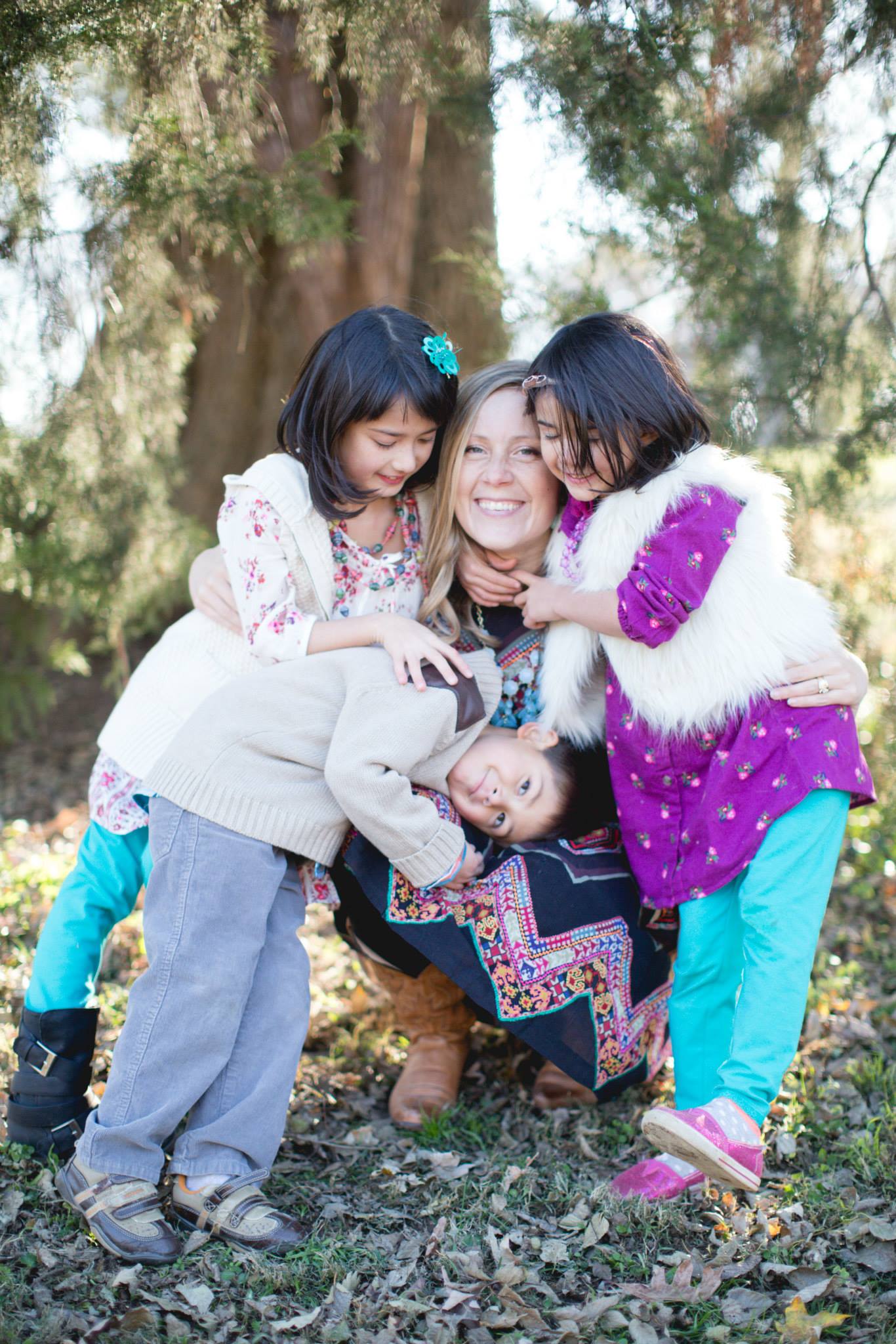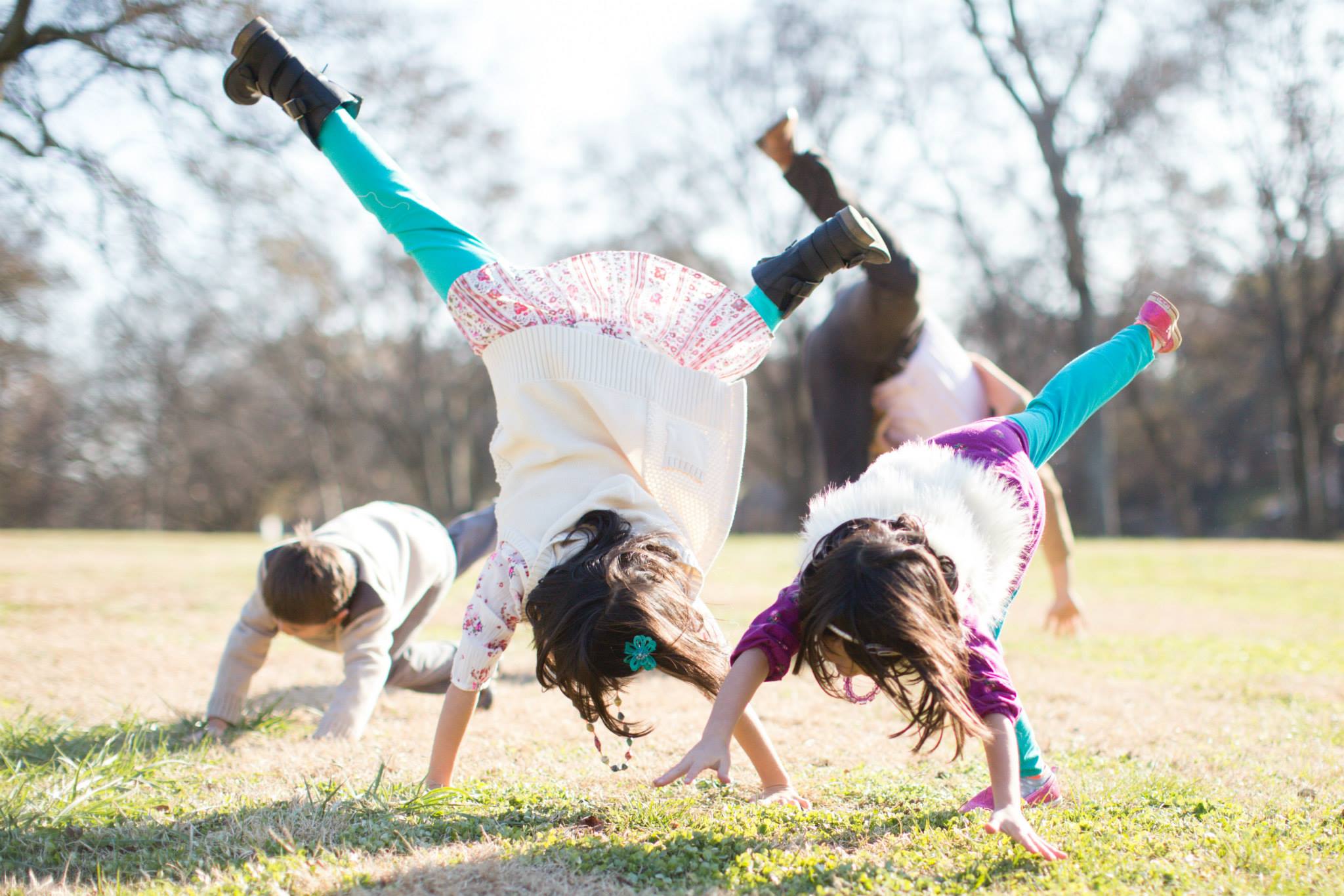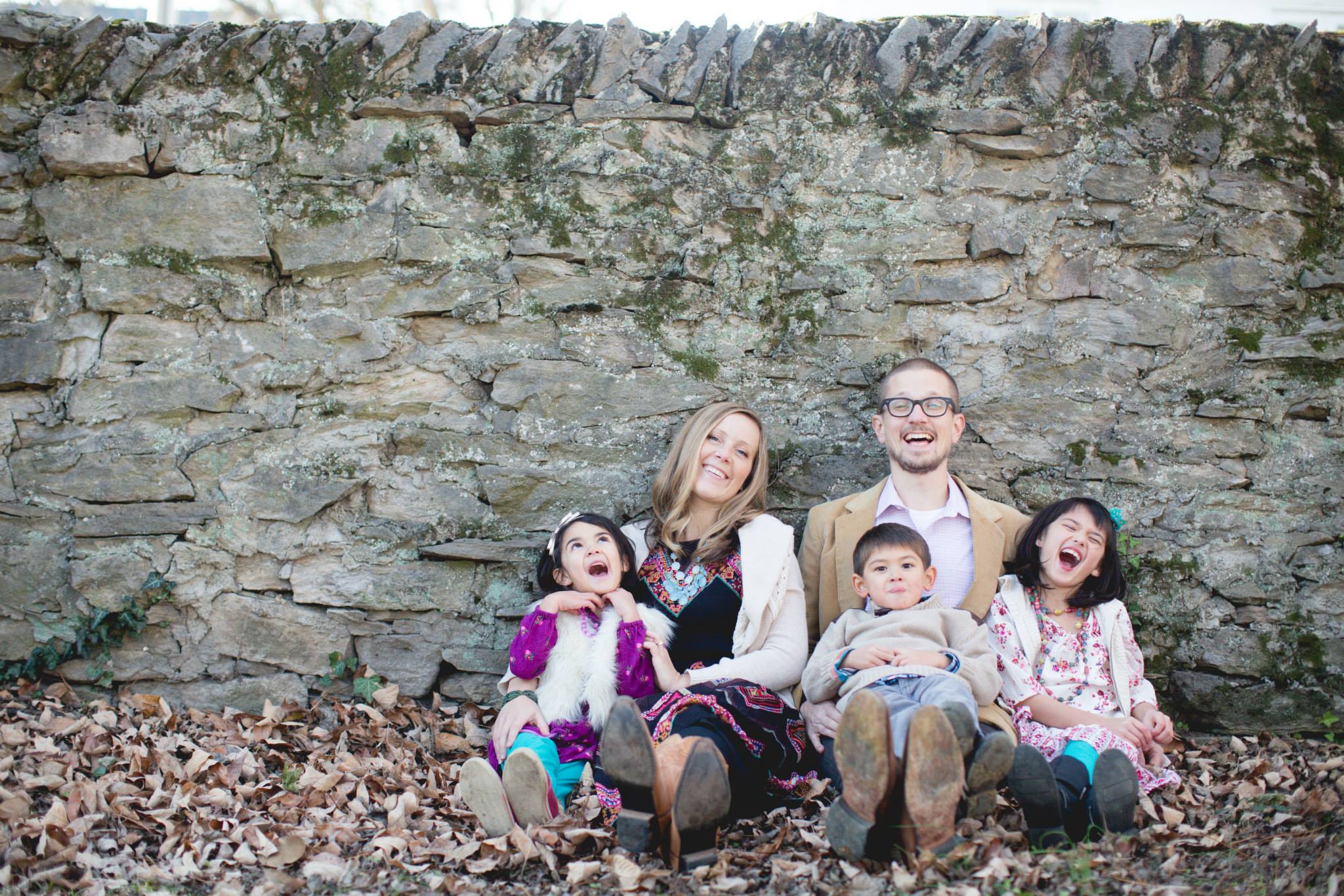I will always remember the first time I made an attachment blunder. My three children had only been home a week.
It was a traumatic moment for both my daughter and myself. She was two and I was trying to “set limits” by telling her what she can and cannot do with the toys. She proceeded to “disobey” and so I said she would sit on the rug while I went into the other room and she could “think about obeying the rules”.
Wow.
When deciding to bring three home from foster care, I thought, “I got this.” I was a trained, practicing counselor who thought she knew enough about attachment and behavior. I had been to counseling, and thought I understood well all my triggers and deficits. I knew about trauma and had actual clinical training on how to handle misbehavior, for goodness sakes. Surely I was well equipped!
However, that day, after I assigned my baby girl to the rug, I was proven so very wrong. My sweet girl could not handle the separation as punishment and reacted instinctively to it, injuring herself; I was left dumbfounded. I sat just holding her and not understanding what had just taken place in the previous twenty minutes.
I tell this story to illustrate that we all have expectations, or beliefs, that we bring into the first few months of adoption. These expectations can lead to parenting mistakes when we act out of them.
Ruptures in attachment can also occur when we keep acting out of our un-met expectations. I made many mistakes during this time, acting out of these maladaptive expectations. Now I work with parents who have brought children, young and older, home from hard places; my hope is that I can help them from under the burden of these expectations that impede attachment.
Expectations are common, and it would be hard to get through life without developing some! Here are five common expectations about attachment we may have early on in the adoption process:
1. I can parent the same way I have with my biological children.
I do not have biological children; however, I did have some pre-conceived notions of “good parenting”. I was a good mom before I became a mother . For those who do have other biological children, this one can be hard. Even if our child has been with us since birth, there were months of formation and environmental factors that had an impact on them. It’s not something we need to be afraid of, that time where we had no control over their development, but simply something we need to understand. The prenatal time gave our children a different set-point for stress and trust. If we respect these factors as simply historical differences, then we can give ourselves permission to parent them differently than what “worked” with our biological children.
2. Acting out is defiance or direct disobedience.
This is what I believed with my daughter’s “not obeying” about how we treat toys. In reality, there were several different things at play. She had undiagnosed partial hearing loss and a history of neglect that left her with a misunderstanding of social norms. These were just a few of the underlying factors that made her behavior seem “defiant” or “disobedient”. She was not being directly defiant or disobedient.
3. With enough love and structure, secure attachment should happen pretty quickly.
Many (including myself) think there should be a couple of months of the attachment process and then, say, after 3 months things can then proceed as “normal”. Attachment can begin to blossom in the first few months; this is true. However, many children need more than just a few months to build trust when they first come home.
4. I will quickly know my child better than any one else.
We will become the advocates for our children and the ones who know them best. However, in the beginning, it is important that we listen to their caseworkers, their previous caregivers, and most importantly the child themselves. Our children are the experts on their own history. If they are too young to be vocal, then reading through their child-life history reports and becoming a detective of sorts, peering into their world, can be so important for bonding.
5. I will instantly fall in love with my child because they are mine.
This one can be hard since many of us may have had a “moment” at the births of our biological children, or another kind of “moment” when we saw our adopted child’s picture for the very first time. Then they came home and the reality of blending two different worlds into one loving family hits us smack in the face.
Love, the behavior, is a choice: practicing patience, being kind, not promoting yourself over others. The feeling of love, which I believe is more associated with attachment, takes time. I remember the time when I “fell in love with” my oldest daughter. The Lord had been working on me for a few months after I brought her home. And he was showing me how to parent her, and I was learning not to expect more of her than she could give. I was freed up to just hold her when she was “acting hard” or being “defiant”. And then one day, I asked her as I usually did, “Do you know you are precious?” That sweet-cheeked, baby girl face beamed back at me and said, “Yes!” and I was smitten! But that day took time to build towards.
Note how much these expectations have to do with a timeline!
As an adoptive parent, I know the challenges, fatigue, joys, small victories, and utter confusion that come with the first couple of months! Hopefully, my missteps can lead to earlier interventions and healing for others.
…..
Eryn has experience doing a little of everything from professional baking, to catering weddings, to professionally counseling anyone from trauma. After adopting her sweet, challenging, rambunctious, awesome three, she needed a place for post-adoption support. So she started a non-profit where other parents could come and get much needed services. Eryn serves as Community Educator, training parents and others on successful ways to connect with kids from hard places.
Eryn’s love language is problem solving and she enjoys being a resource for parents who have adopted or have chosen to foster. She blogs at Pumpkin’s Pantry, where she posts on everything from the hard stuff of adoption to gluten-free recipes.




























Thank you for this, Eryn! If only I had known acting out was all my children knew how to do to communicate with me during their first months home! I love how concisely you shared this message. I wish I could say the challenges, fatigue, joys, small victories, and utter confusion were only during our first few months. We are so thankful to be growing as a family now, though.
Alex, yes! It’s all about the journey and we still most definitely have all those things years later! So thankful parents like you are willing to grow through ti!